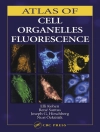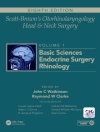This book provides a comprehensive coverage of the state of the art in precision medicine in stroke. It starts by explaining and giving general information about precision medicine. Current applications in different strokes types (ischemic, haemorrhagic) are presented from diagnosis to treatment. In addition, ongoing research in the field (early stroke diagnosis and estimation of prognosis) is extensively discussed. The final part provides an in-depth discussion of how different interdisciplinary areas like artificial intelligence, molecular biology and genetics are contributing to this area.
Precision Medicine in Stroke provides a practical approach to each chapter, reinforcing clinical applications and presenting clinical cases. This book is intended for all clinicians that interact with stroke patients (neurologists, internal medicine doctors, general practitioners, neurosurgeons), students and basic researchers.
Tabella dei contenuti
Part 1: Precision Medicine.- Introduction.- Precision Medicine:enabling health care progresso in the 21stcentury.- Do we need precision medicine in stroke.- Part 2: Current applications of precision medicine in Ischemic stroke.- monogenic diseases.- Pharmacodynamics and pharmacokinetics of stroke therapy.- Acute stroke imaging.- Part 3: Current applications of precision medicine in Haemorrhagic stroke.- Intracerebral haemorrhage.- Part 4: Future application.- Blood protein biomarkers in the diagnosis of stroke.- prognosis determination.- Part 5: Interdisciplinary approach.- Artificial intelligence applications in stroke.- Registry-based stroke research.- From bedside to bench: methods in precision medicine.- Approach for genetic studies.- Part 6: Conclusion.- Precision medicine versus personalized medicine.
Circa l’autore
Ana Catarina Fonseca has a Ph D in Medicine, from the Faculty of Medicine, University of Lisbon (2014), within the medical specialty of neurology. In 2014 she completed a Masters in Public Health from Harvard University (USA), having previously completed two masters: in Stroke Medicine at the University Danube Krems (Austria) and in Neuroscience at the University of Lisbon. She is a researcher at the Institute of Molecular Medicine, teaches Pharmacology and Neurology at the Faculty of Medicine – University of Lisbon and practices medicine at the Hospital de Santa Maria in Lisbon. Her main research interests are cryptogenic stroke, heart-brain interactions and biomarkers. She is currently working in a research project in precision medicine in stroke entitled PRECISE-STROKE with the collaboration of informatics engineers, physicians and basic scientists.
José M. Ferro was born in Lisbon on 22 October 1951. He graduated in 1975 and received his Ph D in Medicine in 1987 from the University of Lisbon. He was a post-doctoral fellow at the Department of Clinical Neurological Sciences, London, Canada. He is currently Full Professor of Neurology and President of the “Conselho de Escola” of the School of Medicine at the University of Lisbon. He is Director of the Department of Neurosciences and Mental Health and Director of the Neurology Service at the Hospital de Santa Maria, Centro Hospitalar Lisboa Norte. He is the head of José Ferro Lab at the Instituto de Medicina Molecular, University of Lisbon. He was President of the European Neurological Society. He has authored or co-authored 309 papers published in international journals and 60 book chapters. His main area of research interest is cerebrovascular disease, with a focus on cerebral venous thrombosis, cryptogenic stroke and cognitive and psychiatric consequences of stroke. He is currently principal investigator of a research project regarding precision medicine in stroke – PRECISE-STROKE.












